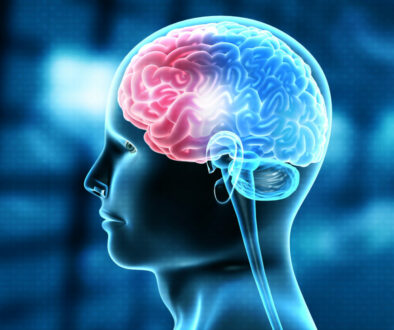Finding Answers for Functional Neurological Disorders (FND)
Functional Neurological Disorder(s) (FND) is a condition in which the patient experiences neurological symptoms. Symptoms may include weakness, movement problems, sensory symptoms, cognitive problems, and convulsions.
As a functional disorder, there is, by definition, no known disease process affecting the body. Pathological conditions, being an end-stage condition, usually have a functional neurological component in the early stages, before becoming pathological. Most end-stage pathological neurological conditions always present with some degree of a Functional Neurological (physiological) concomitant.
There are a great number of symptoms experienced with a functional neurological disorder. These symptoms are real, and their origin is complex. It can be associated with physical, chemical, and psychological traumas to the brain or a combination of all the above. The core symptoms are those of motor or sensory dysfunction or episodes of altered awareness.
Some Symptoms That May Be Associated With a Functional Neurological Disorder (FND):
- Limb weakness or paresis/ paralysis
- Non-epileptic seizures that look like fainting.
- Movement disorders including tremors, Dystonia (spasms), Myoclonus (jerky movements, target tremors, and Parkinson type tremors.
- Visual symptoms, including loss of vision, blurred or double vision (diplopia), and visual snow.
- Auditory symptoms, including various degrees of loss of hearing and ringing in the ears.
- Speech symptoms, including dysphonia, slurred or stuttering speech, expressive and receptive aphasia.
- Numbness or inability to sense touch.
- Dizziness and balance/gait problems (PPPV or brain-based vertigo in 80% of cases).
- Chronic pain in various areas of the body.
- Extreme slowness (ataxia) of movement and fatigue.
- Various degrees of memory loss and cognitive decline.
- *SEE FUNCTIONAL NEUROLOGICAL QUESTIONNAIRE ON WEBSITE for a more comprehensive list of symptoms.
Causes are a combination of a chronic stressful life, poor diet, and physical trauma to the brain, such as brain injuries or concussions. Chemical traumas to the brain, such as being placed under general anesthesia multiple times, COVID-19 vaccinations, and being placed on long-term psychiatric medication such as antidepressants, anti-anxiety medication, etc. Also, antibiotics or proton pump inhibitors (PPIs) can precipitate Functional Neurological Disorders.
Psychological traumas (PTSD) can also cause a functional neurological disorder or contribute to the disorder. After you have had a functional neurological disorder for several months, it may progress into a chronic traumatic encephalopathy (brain injury syndrome).
How a Functional Neurological Disorder (FND) is Diagnosed
Diagnosis is made by a comprehensive history and comprehensive functional neurological examination from a Board Certified Functional (Chiropractic) Neurologist. MRIs, CAT scans, ENG’s and other neurological tests show pathological problems. These tests are not for functional problems in the brain and nervous system. * Pathology should be addressed by a Medical Neurologist or Neurosurgeon.
Treatment will vary based on the areas of the brain affected. There is no “cookie-cutter” treatment for functional neurological disorders. The treatment must be customized based on the patient’s history and comprehensive functional neurological examination findings. The medical approach for a functional neurological disorder is medication, physical therapy, and psychological counseling.
These approaches are symptom-based and NOT PROBLEM-BASED THERAPIES. A CHIROPRACTIC (FUNCTIONAL) NEUROLOGIST HAS THE TRAINING TO REHABILITATE THE BRAIN & NERVOUS SYSTEM AND OPTIMIZE ITS FUNCTION.



